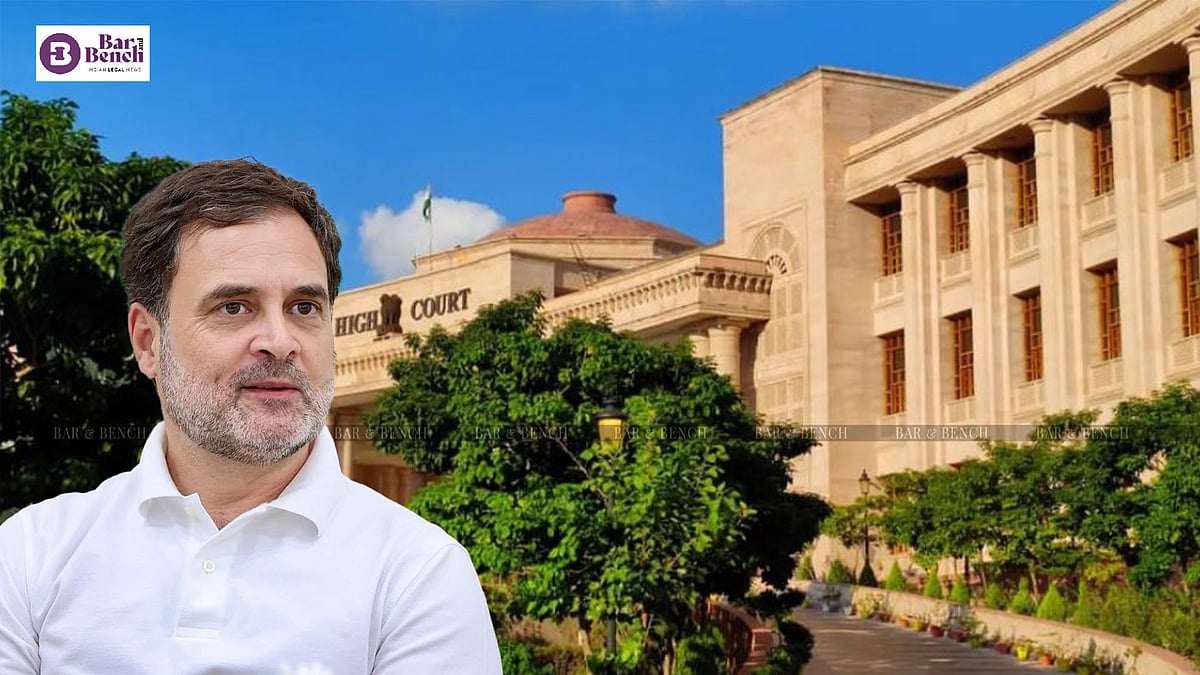 |
|
The Allahabad High Court's recent directive to the Indian government to provide a definitive answer regarding Rahul Gandhi's citizenship by December 19th, 2024, underscores a significant legal development with potentially far-reaching political implications. The case, stemming from a petition filed by S Vignesh Shishir, alleges that the prominent Indian politician holds dual citizenship – Indian and British – a claim that directly challenges Gandhi's eligibility to hold public office. The petitioner's assertion rests on purported evidence suggesting Gandhi's possession of British citizenship, evidence which the court will now indirectly evaluate through the government's forthcoming response. The legal basis for this petition and the standards of proof required to establish dual citizenship remain key elements of this ongoing legal battle. The High Court's decision to involve the central government highlights the significance of this case, indicating a recognition of the potential for national-level consequences.
The central government's role in this case is multifaceted. It is not only responsible for responding to the petition, providing evidence or arguments to support or refute the allegations, but also for upholding the integrity of the citizenship verification process. The government's response will be critically examined by the court to ascertain the validity of the evidence provided by the petitioner and the thoroughness of the government's own investigation into the matter. This involves navigating complex legal frameworks governing citizenship, considering potential international legal dimensions, and ensuring a fair and impartial assessment. The deadline imposed by the Allahabad High Court underscores the urgency and high stakes involved. The government's ability to meet this deadline effectively will be crucial to the case's progression and will inevitably influence public perception of its handling of the matter.
The implications of this case extend beyond the immediate legal proceedings. A determination of Rahul Gandhi's citizenship status could have significant political ramifications, particularly considering his prominent role within the Indian National Congress and his ongoing political activities. If the court were to find in favor of the petitioner, it could lead to serious challenges to his political career, raising questions about past and future elections and potentially setting precedents for future cases involving allegations of dual citizenship among public figures. The case also highlights broader concerns about the transparency and effectiveness of the Indian citizenship verification process, prompting questions about its capability to detect and prevent potential irregularities in citizenship claims, irrespective of political affiliations. The legal and political landscape of India will undoubtedly be influenced by the court's decision, making this case a focal point for national attention and debate.
The legal arguments presented by both sides in this case are expected to be closely scrutinized, not only by the court but also by legal experts and the public. The petitioner's evidence and the government's response will be subject to rigorous examination for their validity, authenticity, and relevance to the central question of Rahul Gandhi's citizenship. The interpretation and application of relevant laws concerning dual citizenship, potential international treaties, and the burden of proof will all play crucial roles in shaping the court's decision. Furthermore, the legal precedents established in this case will have lasting implications for future cases involving similar allegations, thereby solidifying its importance in the Indian legal system.
The outcome of this case will significantly impact public trust in the integrity of the political process. Regardless of the court's decision, the case has already generated intense public debate and raised questions about transparency and accountability in Indian politics. Public scrutiny will remain focused on the fairness and impartiality of the proceedings, as well as the thoroughness of the investigation and the court's judgment. The final ruling will not only determine Rahul Gandhi's citizenship status, but also serve as a benchmark for future similar cases, impacting the overall political landscape and shaping the discourse on citizenship and political accountability in India. The December 19th, 2024 deadline set by the Allahabad High Court signifies a critical juncture in this legally and politically charged case, demanding careful attention and awaiting a decision that will have profound repercussions.
Source: Allahabad High Court asks Centre to decide on Rahul Gandhi citizenship by December 19
